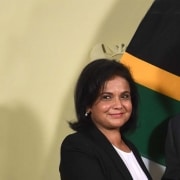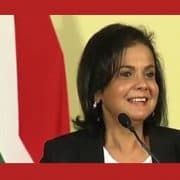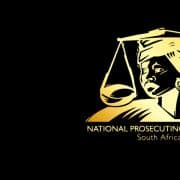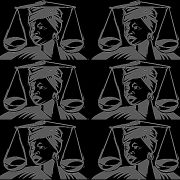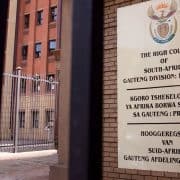|
Getting your Trinity Audio player ready...
|
By Kwazi Dlamini
First published in City Press
The African Union (AU) has marked 2018 as the African year of anti-corruption, with the theme of Winning the Fight against Corruption: A Sustainable Path to Africa’s Transformation.
One of the AU’s weapons in its anti-corruption arsenal is the African Union Convention on Preventing and Combating Corruption (AUCPCC).
It was adopted in 2003 with the express purpose of helping to strengthen African states’ anti-corruption mechanisms, facilitating cooperation between member states in the fight against corruption, and enhancing coordination and harmony between the policies and legislation of member states in this regard.
All AU member states – of which South Africa is one – are required to abide by the terms of the AUCPCC.
In article 5, the convention discusses legislative and other measures to combat corruption, and specifically names the establishment, maintenance and strengthening of independent national anti-corruption authorities and agencies.
For South Africans, this is a statement of great significance.
During the tenure of former president Jacob Zuma, state enforcement and anti-corruption agencies such as the National Prosecuting Authority (NPA), the South African Revenue Service and the South African Police Service were weakened by the placement of Zuma puppets in top positions.
Zuma was eventually ousted in February 2018, but not before inflicting an enormous amount of damage on the country.
It now falls to the entire country, working together, to rebuild.
CIVIL SOCIETY WORKING FOR TRANSPARENCY
The role of civil society in this process of rebuilding cannot be underestimated, especially with regard to Article 5.
Corruption Watch has been advocating transparent appointment processes for top positions in these anti-corruption agencies.
In the past, the appointment of the national police commissioner, the Public Protector, the head of the police Directorate for Priority Crime Investigation (also known as the Hawks) and other positions critical to upholding democratic processes has been the purview of one person – the president of the country.
South Africans have seen for themselves what havoc can be wreaked by the placement of unsuitable persons, when the person appointing them has their own agenda, and that agenda does not align with the national interest.
In advocating an open and transparent process for the appointment of the new public protector in 2016, Corruption Watch developed a model that brought the public into the appointment process. Residents were encouraged to nominate people whom they felt were right for the job.
The short-listed candidates were announced publicly, and the interview processes were not only open to the public, but were broadcast on national television.
In the end, the process was carried out transparently.
It was the same with the appointment of the national police commissioner and the head of the Hawks. The story of police leadership in South Africa makes for grim reading.
Since 1994, there have been nine police commissioners, of whom four have either been convicted, declared unfit for office or are under investigation.
By launching a public awareness campaign in mid-2017, calling for a more transparent, inclusive and merit-based appointment process for both the national commissioner and the head of the Hawks, Corruption Watch and its partner in the project, the Institute for Security Studies, had a hand in bringing about a far more satisfactory result than what had gone before.
The new police commissioner and the new Hawks head are both career police officers and understand what needs to be done to strengthen and capacitate the two law enforcement agencies.
WITHOUT FEAR OR FAVOUR
The latest such critical appointment is that of the national director of public prosecutions (NDPP), the head of the NPA.
To address the corruption that has pervaded government (and the private sector) the NDPP and NPA have to be able to work without political pressure, and to prosecute without fear or favour.
This has not been the case in the past.
Zuma, for example, has been evading corruption charges for years, ever since 2009 when then NDPP, Mokotedi Mpshe, decided to drop 16 charges and 783 counts of fraud, corruption, money-laundering and racketeering against Zuma.
The opposition DA challenged the decision in court.
In 2016 the Pretoria High Court set aside the decision to drop the charges, saying that Mpshe’s decision was irrational, but there was a stumbling block in the form of an NDPP that showed no appetite for reopening the case.
Zuma is still contesting the case, in an approach referred to as the Stalingrad tactic (wearing down the plaintiff by whatever means possible), which is why a courageous, independent NDPP is so important, as it is one of the factors that enable South Africa to abide by the terms of Article 5 of the AUCPCC.
In August 2018 the Constitutional Court confirmed that the manner in which former NDPP Mxolisi Nxasana was removed from office was unconstitutional and invalid, thus rendering Shaun Abrahams’ subsequent appointment invalid.
Abrahams stepped down in August, and the search for a new NDPP was on. However, far from making the appointment unilaterally and opaquely, as Zuma had done, Ramaphosa set up an independent panel to oversee the process of appointing the new NDPP.
Over the course of several weeks, applications and nominations were scrutinised, a short list was drawn up, and interviews took place in the public eye.
Here the Right2Know Campaign, another civil society organisation, played a huge role by applying urgently to the Pretoria High Court to order the president to open the interviews to the media, when it seemed they would take place behind closed doors – an application that the court agreed with.
The appointment of advocate Shamila Batohi is viewed as a step in the right direction.
Not only is Batohi an experienced prosecutor because of her tenure at the International Criminal Court, but that very fact means that she has been out of the country for a number of years and is not likely to be tainted by political corruption.
“If you subvert the criminal justice system, you subvert the rule of law and constitutional democracy itself,” Ramaphosa said, announcing Batohi’s appointment.
• Kwazi Dlamini is a writer at Corruption Watch

